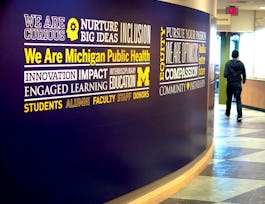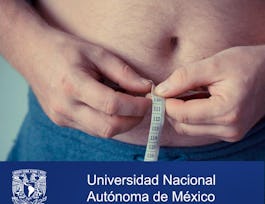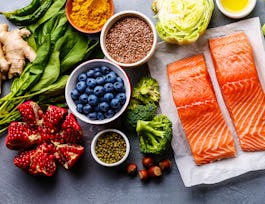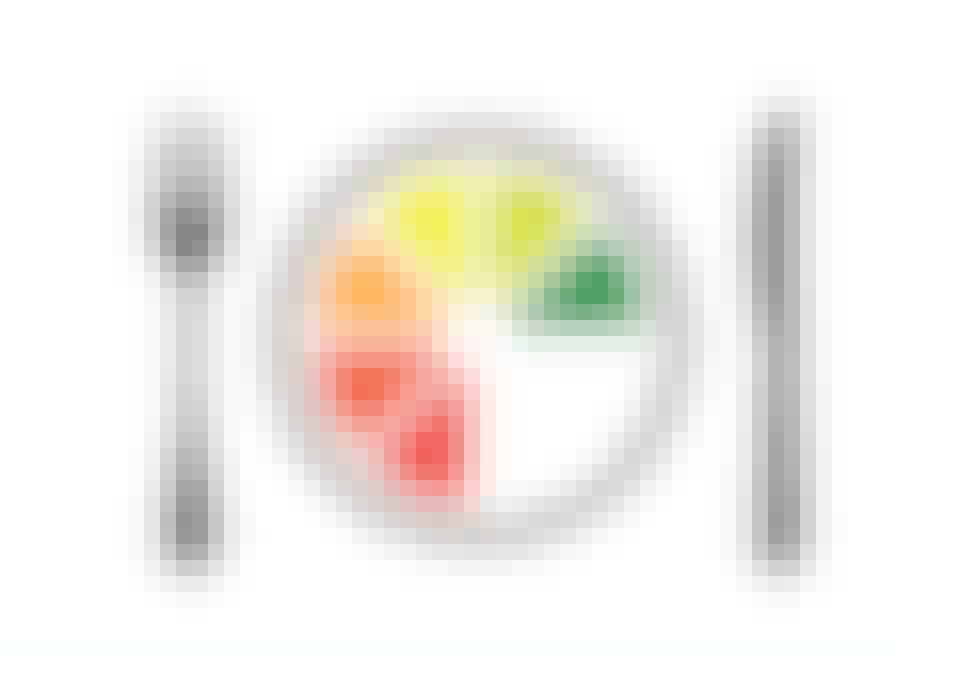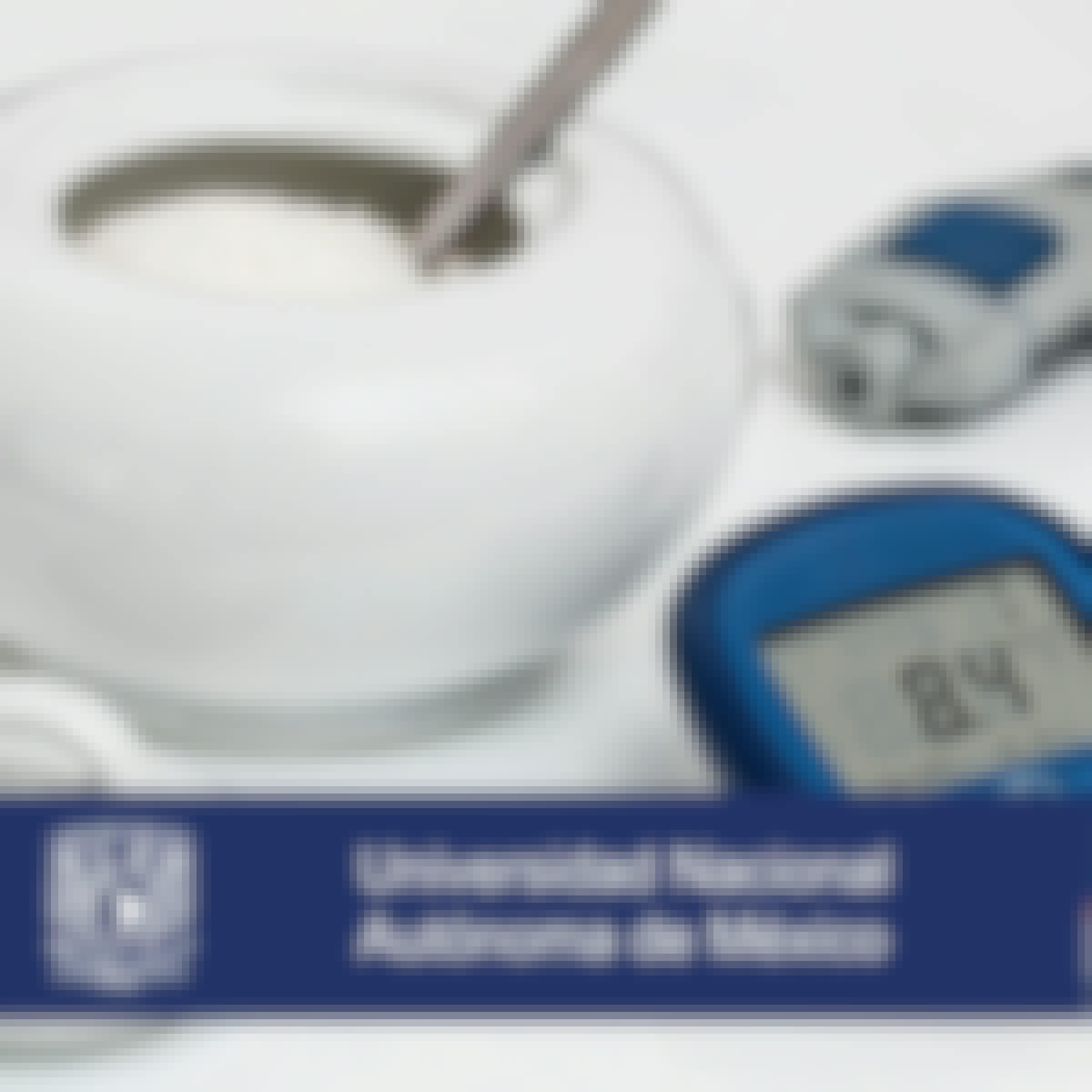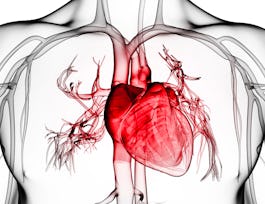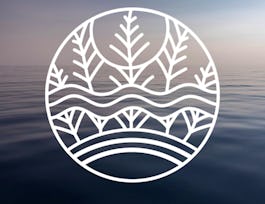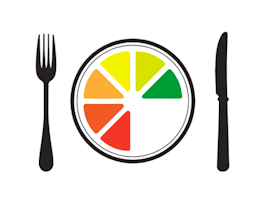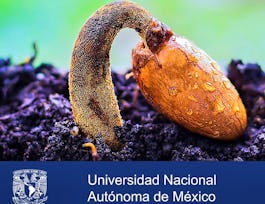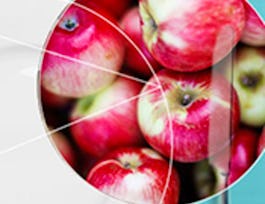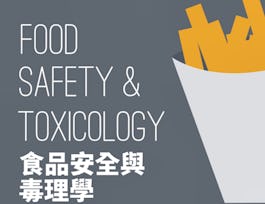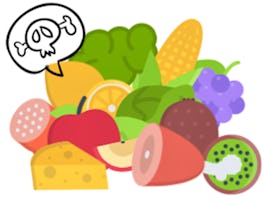Nutrition
Earn Your Degree
Most Popular Courses
Popular Topics
Top Rated Courses
Better Health and Healthy Lifestyle
Most Popular Certificates
Understanding Diabetes and Obesity
More Nutrition Courses
Frequently Asked Questions about Nutrition
These five free online nutrition courses offer an excellent introduction to the study of nutrition and health. For those looking to improve their overall knowledge of the topic, Food and Health is a great option, while parents interested in the nutritional needs of children can take the Child Nutrition course. It's also vital to understand the public health crisis of obesity, and this can be done through the Understanding Obesity course. For those interested in diabetes, is a great course to take Diabetes: Essential Facts, and pregnant women should consider Nutrition in Pregnancy.
Some of the best beginner's nutrition courses available online include the Weight Management: Beyond Balancing Calories course, the NASM Nutrition Essentials course, the Food Sustainability & Mindful Eating Specialization, the Food Relationship & Mindful Eating for Health course and the Sustainable Diets course. These courses enable learners to gain a thorough understanding of nutrition and how to develop healthier eating habits.
If you want to take your nutrition knowledge to the next level, some of the best advanced nutrition courses available are Microbiome, Vital Signs, Nutrition in Pregnancy and the New Nordic Diet. All of these courses can help you gain an in-depth understanding of nutrition and food science.
Nutrition is the branch of life science that studies way different foods and eating habits meet human needs for proper health and development. Proper nutrition can yield a number of benefits, including longevity, maintenance of healthy weight, improved immune system functioning, prevention of chronic diseases, and quicker recovery from injury and illness.
Nutrition is important for people of all ages, but it is particularly important for mothers and children. Adequate nutrition is essential for mothers to have safe pregnancies, and helps ensure proper prenatal health. After children are born, nutrition is critical to their healthy development, both physical and cognitive.
The study of nutrition includes both the health impacts of diet on individuals as well as the impacts of the food system on populations at larger scales. Thus, nutrition is important to the fields of human health and the life sciences, direct healthcare provision, and even broader discussions of public health and its relation to social and economic development.
Because nutrition intersects with so many areas in the field of healthcare and beyond, an educational background in nutrition can lead to a wide variety of career opportunities. If you want to work directly with individuals in need of dietary advice, you can become a dietician, nutritionist, or wellness consultant. If you prefer to work in a context that goes beyond individual patients, students with a background in nutrition can work in jobs like public health nutritionist and food safety auditor.
In addition to being wide-ranging, nutrition is a fast-growing field, as interest in the linkages between food and health increases. According to the Bureau of Labor Statistics, dietician and nutritionist jobs are projected to increase by 11% between 2008 and 2018 - much faster than the average for jobs throughout the economy. These jobs also typically require only a bachelor’s degree, making them relatively accessible compared to jobs requiring a degree from medical or nursing school.
At the end of the day, an education in nutrition is an opportunity to become an expert about something that everyone cares about and pursue a career that can make a big positive impact on people’s health.
Absolutely - online learning about nutrition isn’t limited to food recipes. Leading online learning platforms make it possible to learn from world-class universities on a flexible schedule from anywhere in the world. And, despite providing the same level of education as their on-campus counterparts, including ample opportunities to interact one-on-one with faculty and collaborate with fellow learners, these courses often have significantly lower tuitions.
As the world’s largest online learning platform, Coursera, offers a wide variety of individual courses about nutrition, including food science, as well as health and nutrition, and cooking. You can also study nutrition as part of a broader Masters of Public Health degree program from Imperial College London or the University of Michigan.
Because learning about nutrition is a topic that anyone can benefit from, you don't really need any special experience or skills to learn about it. However, if you're working towards a career in the field of nutrition or looking to advance your career, you may find that previous experience or classes in biology, psychology, anatomy, agriculture microbiology, biochemistry, or public health can be helpful. Previous work as a nurse, nursing assistant, fitness trainer, counselor, or other role that may involve teaching patients to eat a healthy diet can also help prepare you to study nutrition.
Anyone who has a passion for encouraging people to take control of their own health may be best suited for a role in nutrition. An interest in a holistic approach to health can also be beneficial. You'll need to be a person who is a great motivator, as well as someone with excellent interpersonal skills. That means you'll need to be a good listener and a good communicator. Because you'll likely work with multiple clients at a time, you'll need to be a good organizer and great at time management.
Any topics related to the human body or health sciences are good to study along with nutrition. This might include anatomy, physiology, biology, microbiology, and chemistry. Because you'll need to motivate people and persuade them, you may also consider learning about psychology. You may also want to learn about more specific topics within the nutrition line of study, like geriatric nutrition for older people or pediatric nutrition for children.
People who work in the nutrition field most commonly work in health care settings, like hospitals, doctors offices, nursing homes, and clinics. You may work in a school, hospital, or corporate cafeteria, or you may even find yourself working in a lab or at a research institution. Some people in this field even go on to work for state and local government agencies.
Online Nutrition courses offer a convenient and flexible way to enhance your knowledge or learn new Nutrition skills. Choose from a wide range of Nutrition courses offered by top universities and industry leaders tailored to various skill levels.
When looking to enhance your workforce's skills in Nutrition, it's crucial to select a course that aligns with their current abilities and learning objectives. Our Skills Dashboard is an invaluable tool for identifying skill gaps and choosing the most appropriate course for effective upskilling. For a comprehensive understanding of how our courses can benefit your employees, explore the enterprise solutions we offer. Discover more about our tailored programs at Coursera for Business here.
